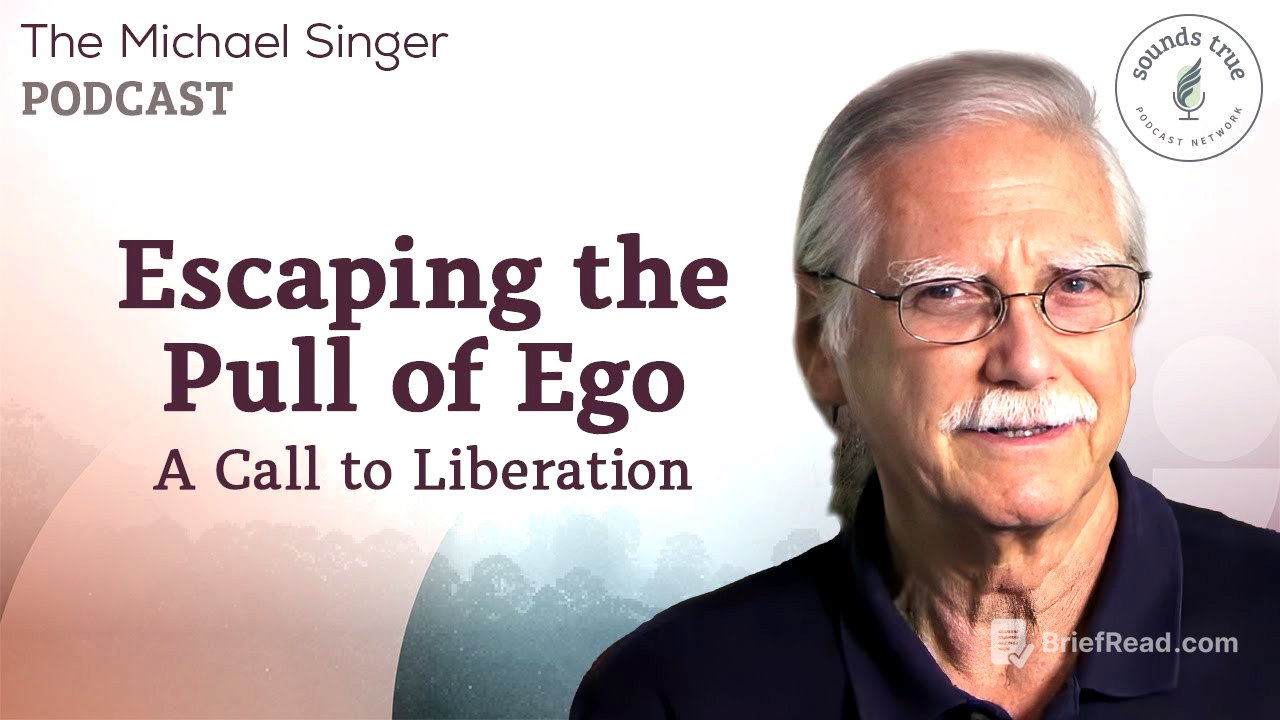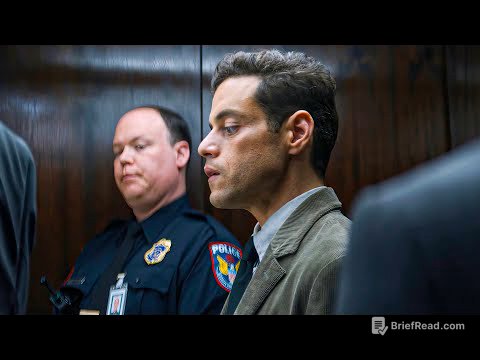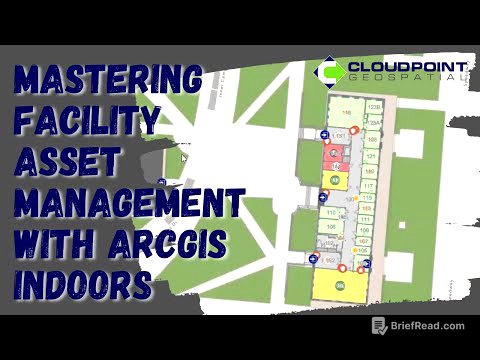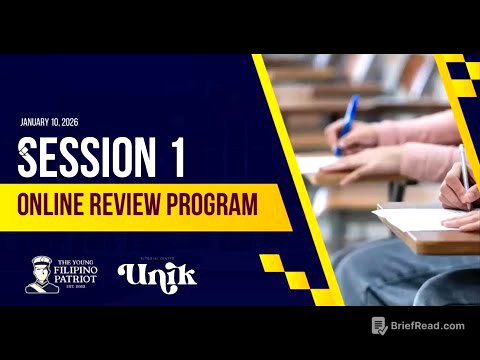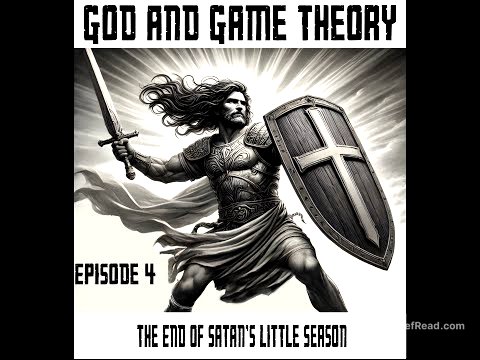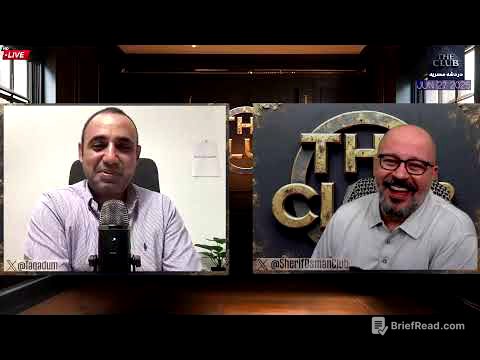TLDR;
This podcast explores the essence of living a spiritual life, emphasizing the critical role of ego and consciousness. It challenges listeners to understand that true spirituality involves liberating oneself from the pull of ego-driven thoughts and emotions, and recognizing the inherent ecstasy and awareness of being that underlies existence. The path to liberation involves detaching from personal preferences, accepting reality as it is, and consistently working to free oneself from self-imposed suffering.
- Ego is the antithesis of God and the root of much suffering.
- Consciousness is the essence of God, and awareness of being is fundamental.
- Spirituality is about liberating oneself from the downward pull of ego and embracing the upward flow of spirit.
- The spiritual path involves letting go of personal preferences and accepting reality.
- Working on oneself to stop causing self-suffering is key to spiritual growth.
Introduction: The Essence of Spiritual Life [0:46]
The podcast begins by addressing the question of how to live a spiritual life, contrasting the common understanding with the deeper truth. It asserts that living spiritually is both simple and extremely difficult, primarily because it revolves around dealing with the ego. The speaker defines ego as anything that separates individuals from God, emphasizing that ego, especially in its extreme forms, leads to destruction and suffering. He uses the metaphor of Lucifer as a fallen angel to illustrate how uncontrolled ego can cause immense harm, leading to personal and interpersonal devastation.
Understanding Ego and Consciousness [2:45]
The discussion shifts to defining ego and its origins, contrasting it with the true self, which is God or consciousness. Consciousness is described as the awareness of being, a state of knowing that one exists without the need for thought or analysis. This pure consciousness is the seat of witness consciousness, allowing one to observe thoughts and emotions without being consumed by them. The speaker references Patanjali's Yoga Sutras to explain how consciousness operates in different states, including wakefulness, dreaming, and dreamless sleep, highlighting that awareness is constant, even when there are no objects of consciousness.
The Spiritual Path: Liberation from the Ego's Pull [8:01]
The core of the spiritual path is presented as liberating oneself from the "draw down" into the objects of consciousness, which are thoughts, emotions, and worldly distractions. This liberation leads to a state of eternal conscious ecstasy, achieved by letting go of the self and the forces that pull one into lower vibrations. The speaker clarifies that this doesn't mean suppressing thoughts and emotions but rather not identifying with them or being pulled down into their drama. True being is found in the awareness of being, separate from external influences and internal turmoil.
The Nature of Distraction and the Original Sin [13:42]
The podcast explores why consciousness gets distracted and pulled down into identifying with what it observes rather than the observer. This is likened to the original sin or the fall from the garden, where consciousness shifts from experiencing creation in oneness with God to focusing on individual desires and fears. The concept of the soul is introduced as God individualized, a concentrated focus of consciousness that, when directed towards the ego, leads to a sense of separation and loss of oneness.
The Illusion of Reality and the Antithesis of Spirituality [17:09]
The discussion touches on the illusory nature of reality, referencing quantum physics and Einstein's perspective that the world is an illusion. The speaker emphasizes that being caught up in oneself and one's desires is the antithesis of the spiritual path. Drawing from the teachings of Meher Baba, he states that "Man minus mind equals God," suggesting that transcending the limitations of the mind leads to union with the divine. The key is to avoid focusing on distractions and instead remain centered in pure awareness.
Deconstructing the Ego: Concepts and Preferences [19:50]
The podcast examines the ego as a self-concept, a made-up identity based on past experiences and impressions. The speaker illustrates this with the example of changing oneself to please a partner, highlighting the malleability and artificiality of the ego. He explains that likes and dislikes are not inherent but are rather the result of experiences that have left impressions on the mind. The spiritual path involves recognizing the absurdity of living a life dictated by these constructed preferences and concepts.
The Meaning of Life: Liberation from Absurdity [23:39]
The speaker urges listeners to wake up and realize that they have created their own suffering by storing negative experiences and building an ego based on them. He challenges the notion that one must strive to be okay, arguing that the fundamental issue is the self-imposed sense of not being okay. Spirituality, therefore, is about recognizing this self-created mess and committing to liberating oneself from it. This involves letting go of the need to control external circumstances and instead finding peace within.
Living in Harmony with Reality: The Teachings of the Dao [26:54]
Drawing on the teachings of Lao Tzu and the Dao, the podcast explains that one can live in the world without being a mess by honoring the unfolding of reality and being at peace with it. The Dao teaches acceptance of opposing forces (yin and yang) and harmony with the way things are. The spiritual path involves letting go of the need for things to be a certain way and instead aligning with the natural flow of existence.
The Spiritual Path: Letting Go of Preferences [29:15]
The spiritual path is further defined as learning to let go of oneself, which begins with noticing and releasing preferences. By removing preferences—what one wants and doesn't want—peace is revealed. The speaker emphasizes that worshiping preferences is not the meaning of life; rather, the true meaning lies in the awareness of being. He encourages listeners to handle reality by accepting what has already happened and to choose acceptance over resistance, which leads to tension and anxiety.
The Choice: Acceptance or Resistance [32:35]
The only choice in life is to accept or resist reality. Resistance causes ulcers, tension, and anxiety, while acceptance brings peace. The speaker points out that fear is a made-up construct, a psychological phenomenon rather than a physical necessity. He urges listeners to decide to want out of this cycle of fear and tension, making liberation the primary purpose of life.
The Journey Out: Seeking the Kingdom of God [35:18]
The podcast emphasizes that the journey out of the ego's grasp begins with a firm decision to seek liberation. Quoting Yogananda's favorite Bible verse, "Seek ye first the kingdom of God," the speaker explains that this means emptying oneself of inner garbage and coming into harmony with life. He addresses common concerns, such as depression, by asserting that the self is not depressed but rather lost in the darkness of the psyche. The key is to make getting out the meaning of life, regardless of how long it takes.
Practical Steps: Working with Yourself [39:01]
The initial step in liberating oneself is to stop causing self-suffering. The speaker advises starting with the "low-hanging fruit"—the simplest, most obvious ways in which one bothers oneself. He uses examples such as getting upset about traffic or the weather to illustrate how often people create unnecessary suffering. He encourages listeners to practice not bothering themselves with meaningless things and to let go of past grievances.
The Power of Practice and Compassion [42:22]
The podcast stresses the importance of practice in spiritual growth, comparing it to practicing a sport or instrument. By consistently working to not get upset and not be bothered by trivial matters, one can improve their ability to handle bigger challenges. The speaker also touches on the concept of compassion, defining it as understanding that others are suffering for no reason and offering them understanding rather than judgment.
Liberation and Harmony with Life [46:30]
As one progresses on the spiritual path, they begin to experience a flow of energy and a sense of harmony with life. This involves letting go of personal desires and fears and dealing with situations peacefully and openly. The speaker shares personal anecdotes of extraordinary events in his own life, emphasizing that anything is possible when one comes into harmony with life. He encourages listeners to stop blaming themselves and others and to commit to freeing themselves from personal noise.
The Call to Freedom [50:18]
The podcast concludes with a call to action, urging listeners to free themselves from the absurdity of their self-created suffering. Referencing Yogananda's passionate appeals, the speaker invites listeners to join him on the path to liberation. He emphasizes that the meaning of life is to work with oneself, to let go of what one wants and doesn't want, and to constantly release personal noise.
